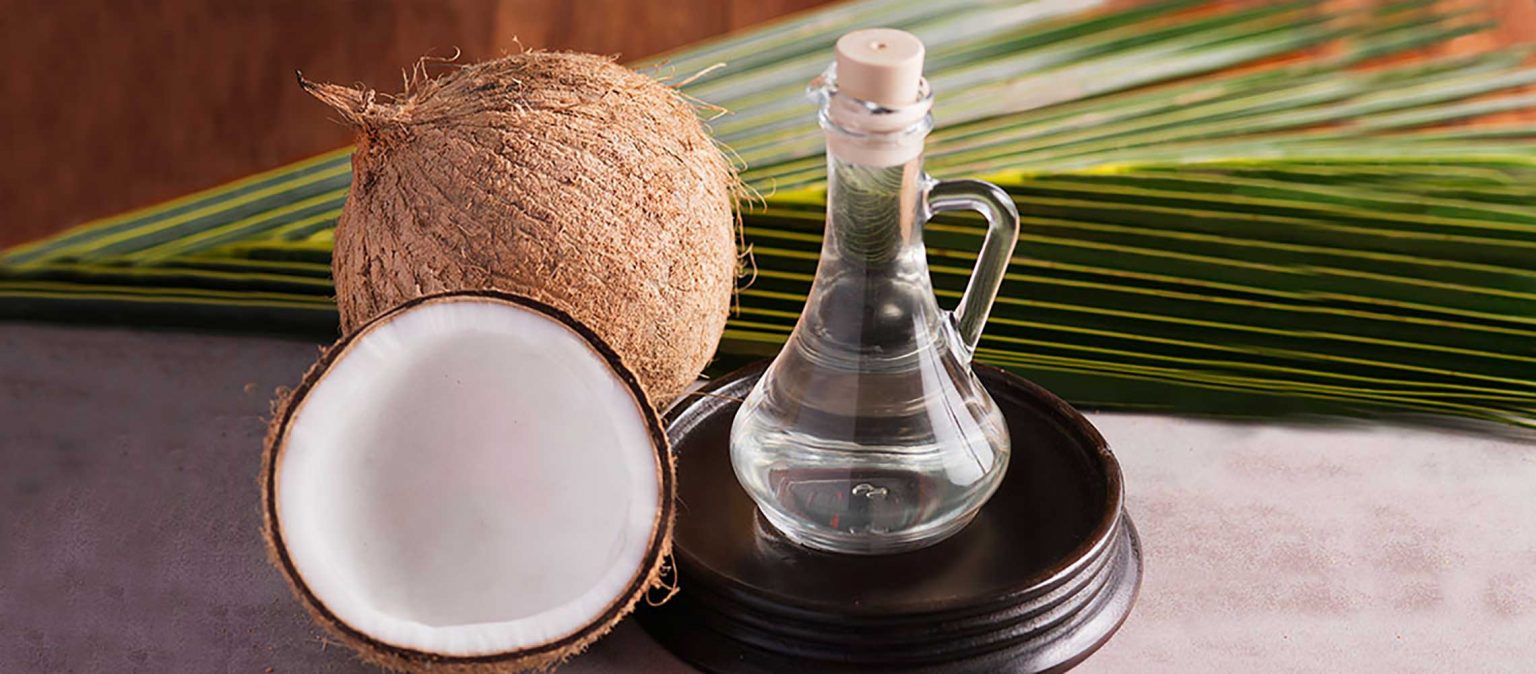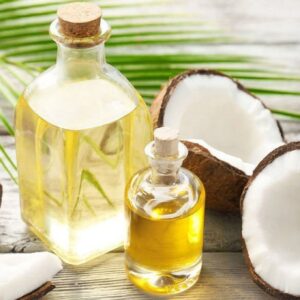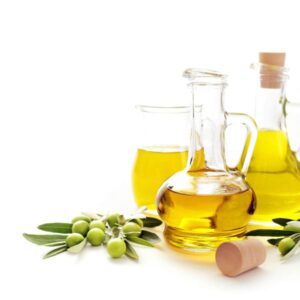Virgin Coconut Oil
Virgin coconut oil is derived from fresh coconuts (rather than dried, as in copra). Most oils marketed as “Virgin” are produced one of three ways:
Quick drying of fresh coconut meat which is then used to press out the oil.
Wet–milling (coconut milk). With this method the oil is extracted from fresh coconut meat without drying first. “Coconut milk” is expressed first by pressing. The oil is then further separated from the water. Methods which can be used to separate the oil from the water include boiling, fermentation, refrigeration, enzymes and mechanical centrifuge.
Wet–milling (direct micro expelling). In this process, the oil is extracted from fresh coconut meat after the adjustment of the water content, and then the pressing of the coconut flesh results in the direct extraction of free–flowing oil.
Unlike olive oil, there is no world or governing body that sets a standard definition or set of guidelines to classify Coconut oil as “Virgin”.
Crude Coconut Oil:
Crude Coconut Oil or CNO, in short, is commonly known as “industrial grade oil.” Originally, CNO is a high end–product that comes from the process of oil extraction from Copra. Oil extraction requires the use of pressure and heat. The purpose is to refine and eliminate impurities as well as contaminants. After the extraction, the Copra can achieve the appropriate moisture content, which is 6–8%.
High Quality Crude Coconut Oil:
Crude coconut oil remains one of our main products. It is derived from dried coconut meat, known as copra. Prior to oil extraction, coconut meat is dried to achieve a moisture content of 6–8%. Oil is extracted from the copra by using expellers and residual oil from the cake is recovered through solvent extraction.
Coconut oil is characterized by high saturated fat content. Compared to other edible oils, it oxidizes more slowly, which is why it does not spoil easily. However, without refinement, as is the case with crude coconut oil, its shelf life is lower. The color and odor of crude coconut oil also makes it unsuitable for use in cosmetics or food. It has other uses though in non–food industries. Crude coconut oil contains small amounts of crude fiber and trace metals such as iron (Fe), lead (Pb) and copper (Cu). It is high in lauric acid, which is used in many commercial products as antimicrobial agents.
Crude coconut oil is industrial grade oil, which can be a raw material in the production of surfactants and lubricants. More recently, its use as a diesel engine fuel has been the focus of several studies. Further research is also being done to know more about the potential of coconut oil as a fuel for electricity generation. We look forward to new and more innovative ways of utilizing crude coconut oil based on research and development in the future.
Free Fatty Acid (FFA) in coconut oil can reach more than 0.1%. Therefore, it cannot be immediately consumed by people. It is advisable to use crude coconut oil only for external consumption. CNO is really great for lubrication and moisturizing purpose due to the percentage of moisture level. CNO has the quality of being mild when applied to the skin. It also has the attribute of being gentle on the surface. It could also be used as a cleaning solution and a sunscreen agent. It is, therefore, often used as raw resources for oleo–chemicals, soap production, shampoo, and cosmetic products.
Coconut oil also has a high saturated fat quality. It oxidizes more steadily than other vegetable oils that are why it does not ruin easily. But, without refining, as was the situation with crude coconut oil, the shelf life of the oil is lower. The shade and smell of unrefined coconut oil also make it inappropriate to be used in beauty products or food. It has several advantageous uses for non–food businesses. Crude coconut oil comprises tiny amounts of raw fiber and trace materials like iron (Fe), lead (Pb), and copper (Cu). It is rooted in lauric acid, which is used as an antimicrobial agent in several similar products.
Previously, coconut oil has been used as a diesel engine fuel in a number of studies. More researches are also being performed to learn as much about the capability of coconut oil as gasoline for energy production. We also take a glance forward to creative ways of using crude coconut oil based on future research and development.
Crude Coconut Oil is an amazing oil with numerous uses. As the name implies, Celebes Organic Crude Coconut Oil is produced using the coconut, which is one of numerous sorts of “Oilseeds.”
Crude Coconut Oil, also referred to as “CNO,” has been utilized in many industries, including; beauty, food, healthcare, nutraceuticals, soap, as well as a replacement for petroleum oil such as industrial grade oils and more recently, as a feedstock in the production of Biodiesel.
Crude Coconut Oil is produced by pressing the crude oil from the coconut’s copra, which is the dried coconut meat. Typically, the pressing is accomplished through the use of an expeller press. After the crude coconut oil has been expressed, it is then “refined” which eliminates contaminants or other impurities. Once further processed by refining, the product is called RBD (Refined) Coconut Oil. From RBD Coconut Oil, this can be further transformed to create Specialty Fats.






